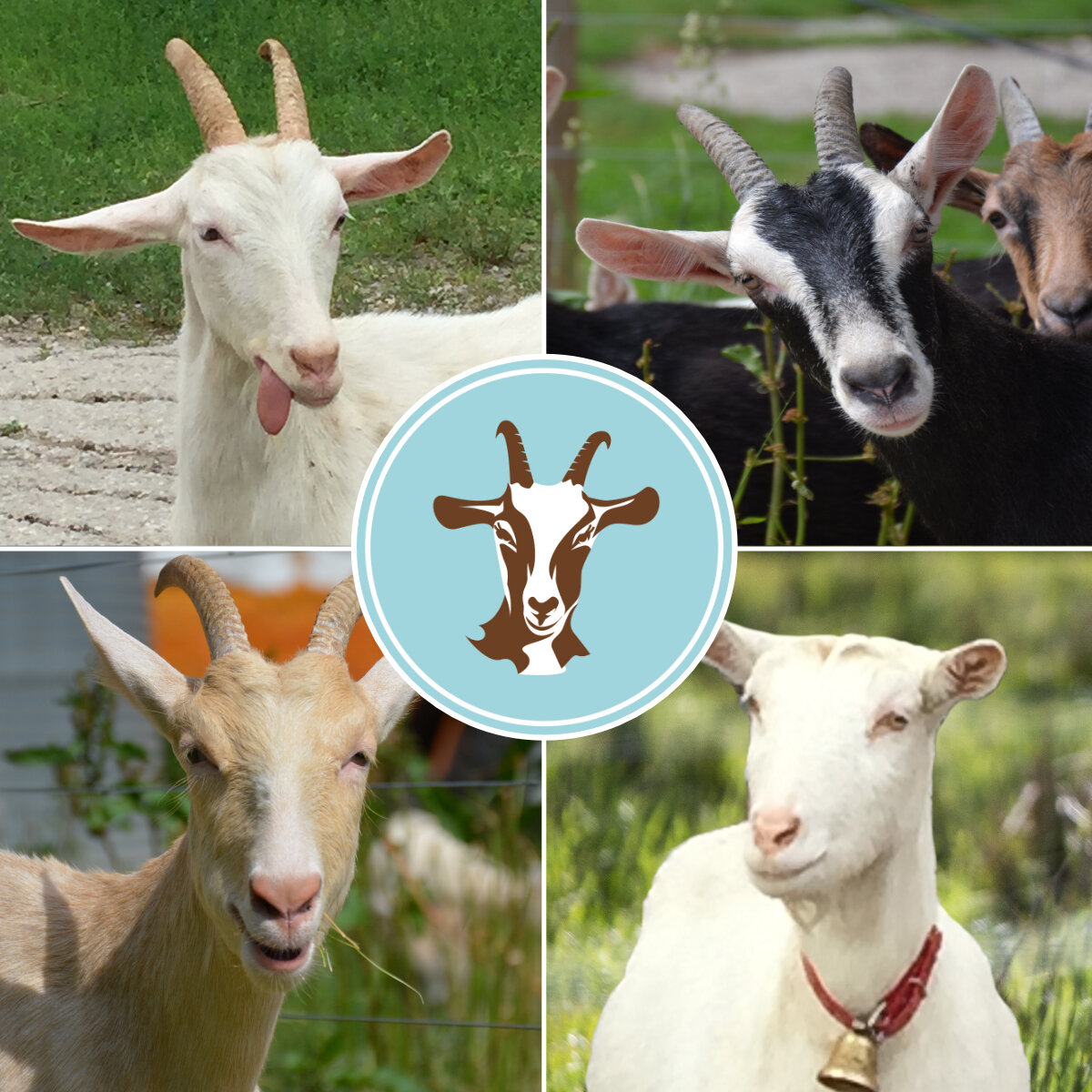Farm life - introducing a few of our goats
We have a lot of goats and we don’t name them all, however some just beg to have their own title.
We have Jumper for example (bottom right) - unlike the other goats she has her own red collar, she doesn’t need a collar as she never goes far, but she looks so cute with it! Jumper was named because of her olympic jumping skills - she can jump any partition in the barn. Jumper sets her own milking schedule, she goes where she pleases and most days we wonder if she thinks she’s a dog and not a goat. Jumper just doesn’t like being told what to do… hmmm seems like Jumper and I have a lot in common!
Belle (bottom left) as you can see gets her name honestly, she is a gentle and beautiful goat in spite having a full set of horns. She loves just blending in and being part of the herd! However, Midnight (top right) is bossy and a natural born leader - she isn’t always sure which she wants to be!
Then there is Lickety Split (top right) - she is so famous she made it to the back of our business cards! Lickety Split was born “special” - her tongue hangs out to one side. Despite this disability she is healthy and happy (although I had to wash her face to get the picture since she is often a mess from not being able to put her tongue back in her mouth as she drinks). Lickety has never had kids and never provided milk but she’s become one of the family so we just couldn’t think of parting with her.
We are sometimes asked what kind of goats we have, and the short answer is dairy goats (there are breeds for meat and for dairy). The longer answer is that we have a few different breeds that are selected for different traits (some give more volume and protein, others more fat content) and then cross bred. We currently have Saanens (the most typical dairy goats), Alpines (they have beautiful colouring) , Nubians (they have cute floppy ears) and Lamanchas (they have almost no ears!).
We breed naturally using bucks in season and also encourage off season breeding using a light program to mimic the season. Off season breeding is done so that we don’t have too many babies all born at the same time. Goats have a gestation period of 5 months and often give birth to twins.
Our goats are free roaming in large barns for socialization and dry goats have a large 4 acre field to graze and play. Goats are naturally curious and so can get themselves into all kinds of trouble - they love to chew things so never leave anything lying around you don’t want chewed.
We are asked quite a bit whether we do Goat Yoga on our farm… the thought of goats jumping on my back, going to the bathroom on me and chewing up my yoga pants just doesn’t seem very relaxing to me, so no we don’t.
More farm life stories to come,

